0
Report
Community:
May 17, 2023
Researchers at UC Berkeley’s Youth and Allies Against Homelessness, or YAAH, conducted a study to better understand how the COVID-19 pandemic disproportionately affected unhoused youth and their ability to transition out of homelessness and into adulthood. YAAH released a report Wednesday to suggest how to better support this community in the future.
Authored by: UC Berkeley's Youth Allies Against Homelessness for The Daily Californian
Topics: Broadband, COVID-19, Food insecurity, Health, Homelessness, Housing, Low-income, Mental health, Racial inequalities, Youth
 Shared by Sandra Ware
Shared by Sandra Ware
Sandra Ware posted a
on May 25, 2023
UC Berkeley's Youth Allies Against Homelessness for The Daily Californian
Researchers at UC Berkeley’s Youth and Allies Against Homelessness, or YAAH, conducted a study to better understand how the COVID-19 pandemic disproportionately affected unhoused youth and their ability to transition out of homelessness and into adulthood.
0
Interactive
Community:
May 24, 2023
Ever wondered what health centers are close to your public housing property? Check out this map to learn more.
Authored by:
Topics: Health, Housing
 Shared by Camille Anoll-Hunter
Shared by Camille Anoll-Hunter
Camille Anoll-Hunter posted a
on May 24, 2023
Ever wondered what health centers are close to your public housing property? Check out this map to learn more.
0
Report
Community:
Mar 1, 2023
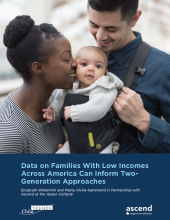
We are delighted to share a new research report in partnership with Child Trends: Data on Families with Low Incomes Across America Can Inform Two-Generation Approaches. In this new analysis, research experts Elizabeth Wildsmith and Marta Alvira-Hammond paint a detailed picture of how families in households with low incomes in the United States have changed since 2011. The report highlights 10 key findings from their analyses of family economic and social conditions related to financial security and mobility, family structure and living arrangements, education and employment, parental health, and community health indicators (for example, rates of child poverty, violent crime, child care costs). A deeper understanding of families with low-incomes will inform our collective work and strengthen how our 2Gen policy and practice recommendations can prioritize health, education, employment, and economic assets to ensure families have access to the resources they need to build intergenerational prosperity and well-being.
Authored by: Elizabeth Wildsmith and Marta Alvira-Hammond for Child Trends in partnership with Ascend at the Aspen Institute
Topics: dual-generation initiative, Early childhood, Education, Health, Housing, Legislation & Policy, Low-income, Racial inequalities
 Shared by Sandra Ware
Shared by Sandra Ware
Sandra Ware posted a
on Mar 2, 2023
Elizabeth Wildsmith and Marta Alvira-Hammond for Child Trends in partnership with Ascend at the Aspen Institute
We are delighted to share a new research report in partnership with Child Trends: Data on Families with Low Incomes Across America Can Inform Two-Generation Approaches.
0
Video
Community:
Jun 17, 2022
The Vancouver Housing Authority collaborated with a Federally Qualified Health Center and a homeless crisis response system to develop a network of scattered-site and site-based supportive housing. This moderated discussion will cover how VHA paired Housing Choice Vouchers and public housing with a Medicaid-funded supportive housing benefit to serve people identified by the community’s Coordinated Entry as needing supportive housing. Speakers will also discuss the challenges faced through the process, model adjustments made, and evaluation of the work through matching housing data and Medicaid utilization data.
Authored by:
Topics: Advocacy, CLPHA, Data sharing, Family engagement, Health, Healthy homes, Homelessness, Housing, Legislation & Policy, Low-income, Research, Stability, Sustainability
 Shared by Karina George
Shared by Karina George
Karina George posted a
on Jun 17, 2022
The Vancouver Housing Authority collaborated with a Federally Qualified Health Center and a homeless crisis response system to develop a network of scattered-site and site-based supportive housing.
0
Video
Community:
Jun 17, 2022
The Administration for Community Living’s Aging and Disability Network is a multifaceted service infrastructure for older adults and people with disabilities so they can find housing and obtain services like chore assistance, delivered meals, and transportation. By partnering with this community infrastructure, PHAs can improve voucher utilization and leverage and align resources so older adults, people with disabilities, and people experiencing homelessness —all priority populations for federal housing assistance—can obtain supportive services needed to attain housing stability, optimize well-being, and avoid homelessness and costly institutional care. Join this session to learn about PHA partnerships with this infrastructure, discuss the dynamics of cross-sector partnerships in community-driven approaches, and discover opportunities available through the Housing and
Services Resource Center.
Authored by:
Topics: Advocacy, Community development, Disabilities, Health, Housing, Partnerships, Research, Seniors, Supportive housing, Sustainability
 Shared by Karina George
Shared by Karina George
Karina George posted a
on Jun 17, 2022
The Administration for Community Living’s Aging and Disability Network is a multifaceted service infrastructure for older adults and people with disabilities so they can find housing and obtain services like chore assistance, delivered meals, and transportation.
0
Video
Community:
Jun 17, 2022
NYC was an epicenter at the start of the COVID-19 pandemic, and the city’s population density continues to be a driver of the deep, ongoing public health crisis. As NYC’s largest residential landlord, The New York City Housing Authority (NYCHA) unsurprisingly works with a number of health partners to bring information and services to residents, but the Authority hasn’t stopped there. Learn how NYCHA has leveraged partnerships at the intersection of health, housing, and economic opportunity to expand pathways for residents into health training and jobs during the past two years, and what’s on the horizon for the next phase of this exciting work.
Authored by:
Topics: Advocacy, Asset building, CLPHA, Health, Healthy homes, Housing
 Shared by Karina George
Shared by Karina George
Karina George posted a
on Jun 17, 2022
NYC was an epicenter at the start of the COVID-19 pandemic, and the city’s population density continues to be a driver of the deep, ongoing public health crisis.
0
Video
Community:
Jun 17, 2022
The Low Income Investment Fund (LIIF) will moderate a unique cross-sector panel of housing and early care and education (ECE) experts on strategies and best practices for co-locating ECE facilities within affordable housing developments. Discussion of specific financing techniques and site design considerations from existing co-located facilities will provide attendees lessons on policy and programmatic changes needed to incentivize co-location. Panelists include innovators in affordable housing development, government and public sectors, early care and education operations, and community development finance.
Authored by:
Topics: Advocacy, Broadband, Child welfare, CLPHA, Family engagement, Food insecurity, Health, Housing, Legislation & Policy, Low-income, Nutrition, School-readiness, Supportive housing, Sustainability
 Shared by Karina George
Shared by Karina George
Karina George posted a
on Jun 17, 2022
The Low Income Investment Fund (LIIF) will moderate a unique cross-sector panel of housing and early care and education (ECE) experts on strategies and best practices for co-locating ECE facilities within affordable housing developments.
0
Video
Community:
May 18, 2021
Roundtable: Cross-Sector Efforts on COVID-19.
More than a year into a global pandemic, we continue to see disparities in infections, access to care, and economic supports, with an unequal burden on low-income and communities of color. This roundtable will discuss perspectives from housing, health, and policy for what we have seen and what may be to come, as well as ideas we may enact to create more permanent solutions, in addition to addressing current crises.
Authored by: CLPHA
Topics: CLPHA, Community development, COVID-19, Education, Health, Housing, Partnerships
 Shared by Housing Is
Shared by Housing Is
Housing Is posted a
on May 18, 2021
Roundtable: Cross-Sector Efforts on COVID-19.
More than a year into a global pandemic, we continue to see disparities in infections, access to care, and economic supports, with an unequal burden on low-income and communities of color.
0
Video
Community:
Jun 12, 2020
Community health workers (CHW) can be vital to ensuring individuals and communities accessing the full range of healthcare and social services they need. Housing authorities and their health partners are increasingly looking for ways to train and deploy CHWs in their communities to help improve health outcomes, improve satisfaction with care, lower healthcare costs, and minimize health disparities. This session will explore several PHAs training residents to become CHWs. Participants will learn of the deliberative process undertaken to design proofs of concept that feature cross-sector partnerships, metrics determination, data collection and sharing approaches, evaluation planning, anticipated outcomes and strategies for replicability.
Authored by: CLPHA
Topics: Health, Housing, Summit 2020
 Shared by Steve Lucas
Shared by Steve Lucas
Steve Lucas posted a
on Jun 12, 2020
Community health workers (CHW) can be vital to ensuring individuals and communities accessing the full range of healthcare and social services they need.
0
Video
Community:
Jun 12, 2020
Following our 2020 Summit Keynote Speaker Congresswoman Donna Shalala, we will hear from a roundtable comprised of a national Medicaid payer, large housing authority, and essential health care service provider about improving outcomes through innovative collaboration between the health and housing sectors. As a Medicaid managed care organization, UnitedHealthcare Community & State has forged partnerships with public housing authorities (PHAs) and federally qualified health centers (FQHCs) to address the social determinants of health of those individuals accessing the Medicaid system. UnitedHealthcare will be joined in this conversation by the Housing Authority of the City of Austin and Bread for the City (an FQHC in Washington, DC) to discuss the importance of including all of these partners at the table. Especially in light of the COVID-19 pandemic, which has placed public health and social inequities front and center, we are reminded of the importance of partnerships with an “all hands on deck” approach to produce results.
Authored by: CLPHA
Topics: Health, Housing, Summit 2020
 Shared by Steve Lucas
Shared by Steve Lucas
Steve Lucas posted a
on Jun 12, 2020
Following our 2020 Summit Keynote Speaker Congresswoman Donna Shalala, we will hear from a roundtable comprised of a national Medicaid payer, large housing authority, and essential health care service provider about improving outcomes through innovative collaboration between the health and housing s
0
Video
Community:
Jun 12, 2020
Housing providers and public health experts share insights from building cross-sector health and housing partnerships. King County Housing Authority, Seattle Housing Authority, and Public Health - Seattle & King County have integrated housing data with Medicaid and Medicare data to better understand resident health needs and inform health initiatives. Leveraging this linked dataset, Dr. Craig Pollack is investigating the effects of receiving housing assistance on health outcomes. Vancouver Housing Authority is part of the Health and Housing Innovation Partnership, which aims to increase housing options for people with complex behavioral and physical health conditions and to better integrate health care services with the housing. Yakima Housing Authority recently became a Supported Employment provider under a new Washington State Medicaid Program, requiring the agency to become more connected to the state’s Medicaid system.
Authored by: CLPHA
Topics: Health, Housing, Summit 2020
 Shared by Steve Lucas
Shared by Steve Lucas
Steve Lucas posted a
on Jun 12, 2020
Housing providers and public health experts share insights from building cross-sector health and housing partnerships.
0
Video
Community:
Jun 12, 2020
COVID-19 is disproportionately impacting the health of low income housing residents and minority communities. Those who have symptoms of COVID-19 may not have the knowledge and resources to prevent the spread of infection, to seek appropriate healthcare, and to maintain quarantine. Lack of experience with telemedicine and lack of home blood pressure and glucose monitoring devices will result in worsening chronic disease health outcomes. Furthermore, the increased financial and emotional stress during the COVID-19 epidemic may result in increased need for mental health support.
The Bringing Health Home (BHH) Program, a collaboration between the Housing Authority of the City of Austin and the University of Texas Dell Medical School and funding provided by the St. David's Foundation, has trained and hired residents as state-certified Community Health Workers (CHW) to conduct virtual outreach to their neighbors at the largest public housing community to assess and address needs in the context of COVID-19.
Using CDC guidelines, the CHWs assess their peers over the phone for COVID-19 symptoms, reinforce preventative measures, link them to testing and medical care, when indicated, and connect them to other available resources, as needed. With this support, it has been possible for BHH residents with COVID-19 to maintain self-isolation and minimize transmission. The BHH team will share the work they are doing to prevent health disparities, minimize COVID-19 deaths, contain the virus, and protect the public welfare by supporting COVID-19 positive households with customized relief packages and symptom monitoring as they remain under quarantine.
Authored by: CLPHA
Topics: Health, Housing, Seniors, Summit 2020
 Shared by Steve Lucas
Shared by Steve Lucas
Steve Lucas posted a
on Jun 12, 2020
COVID-19 is disproportionately impacting the health of low income housing residents and minority communities. Those who have symptoms of COVID-19 may not have the knowledge and resources to prevent the spread of infection, to seek appropriate healthcare, and to maintain quarantine.
0
Video
Community:
Jun 12, 2020
June 4-5, Hosted Virtually via Zoom | Opening remarks by CLPHA President Stephen Norman and CLPHA Executive Director Sunia Zaterman followed by a roundtable discussion featuring voices from the housing, health, and education sectors. We kicked off the Summit with a Plenary Roundtable (starting at 20:53): Cross-Sector Crisis Response -- What We Are Learning About Cross-Sector Collaboration from COVID-19. About the panel: Partnerships have always been critical to improving life outcomes for low-income individuals and families. The global coronavirus pandemic has highlighted how crucial these partnerships are and how fractured our safety net systems remain. The health, economic, and educational consequences of COVID-19 have further imperiled already vulnerable people who face new and worsening challenges. Collaboration at the intersection of housing, education, and public health has been key to effective community responses to the pandemic. This roundtable will discuss how COVID-19 has compelled organizations to work differently to serve those in need and what lasting changes we can anticipate across sectors in the coming months and years. Panelists will specifically address the issues of out-of-school time, public health, connectivity, and social isolation for low-income residents.
Authored by: CLPHA
Topics: Education, Health, Housing, Summit 2020
 Shared by Steve Lucas
Shared by Steve Lucas
Steve Lucas posted a
on Jun 12, 2020
June 4-5, Hosted Virtually via Zoom | Opening remarks by CLPHA President Stephen Norman and CLPHA Executive Director Sunia Zaterman followed by a roundtable discussion featuring voices from the housing, health, and education sectors.
0
Video
Community:
Jun 12, 2020
June 4-5, 2020, Hosted Virtually via Zoom
Authored by: CLPHA
Topics: Funding, Health, Housing, Medicaid / Medicare, Summit 2020
 Shared by Steve Lucas
Shared by Steve Lucas
Steve Lucas posted a
on Jun 12, 2020
June 4-5, 2020, Hosted Virtually via Zoom
0
Report
Community:
Nov 7, 2019
How Housing Programs Can Support the Educational Needs of Children Living in Publicly Supported Homes
Authored by: Public and Affordable Housing Research Corporation
Topics: Attendance, Broadband, Child welfare, Early childhood, Health, Housing, Literacy, Low-income, Out-of-school time, Partnerships, Place-based, Research, School-readiness
 Shared by Kelly McElwain
Shared by Kelly McElwain
Kelly McElwain posted a
on Nov 7, 2019
Public and Affordable Housing Research Corporation
How Housing Programs Can Support the Educational Needs of Children Living in Publicly Supported Homes
0
Report
Community:
Jun 6, 2019
Trends in Housing Assistance and Who it Serves
Authored by: PAHRC
Topics: Community development, Disabilities, Education, Funding, Health, Homelessness, Housing, Legislation & Policy, Low-income, Partnerships, Research, Seniors, Workforce development, Youth
 Shared by Keely Stater
Shared by Keely Stater
Keely Stater posted a
on Sep 10, 2019
Trends in Housing Assistance and Who it Serves
0
Video
Community:
May 24, 2019
With ever-growing interest in the intersection between housing and health, researchers are evaluating the impact of cross-sector interventions. This session will bring together researchers to share insights from their work relevant to practitioners and policymakers.
Authored by: Housing Is, CLPHA
Topics: CLPHA, Health, Homelessness, Housing, Low-income, Partnerships, Research, Seniors
 Shared by Housing Is
Shared by Housing Is
Housing Is posted a
on May 24, 2019
With ever-growing interest in the intersection between housing and health, researchers are evaluating the impact of cross-sector interventions. This session will bring together researchers to share insights from their work relevant to practitioners and policymakers.
0
Video
Community:
May 24, 2019
Dr. Camara Jones, a Senior Fellow at Morehouse School of Medicine and a past president of the American Public Health Association, will discuss systemic, historical inequities that constrict the social safety net and ways cross-sector collaboration can help improve health outcomes, educational attainment, and housing stability.
Authored by: Housing Is, CLPHA
Topics: Health, Housing, Racial inequalities, Research
 Shared by Housing Is
Shared by Housing Is
Housing Is posted a
on May 24, 2019
0
Video
Community:
May 24, 2019
Building Internal PHA Capacity for Cross-Sector Partnerships: How to creatively expand and enhance internal capacity to support cross-sector partnerships.
Authored by: Housing Is, CLPHA
Topics: CLPHA, Education, Health, Housing, Partnerships
 Shared by Housing Is
Shared by Housing Is
Housing Is posted a
on May 24, 2019
Building Internal PHA Capacity for Cross-Sector Partnerships: How to creatively expand and enhance internal capacity to support cross-sector partnerships.
0
Report
Community:
May 15, 2019
Where you live is linked to how healthy you are.Sadly, U.S. Latino communities are marked by lower-quality, unaffordable housing, as well as high risk for eviction and displacement. This contributes to health inequities in this population. That’s what we found in our new research review, The State of Latinos and Housing, Transportation, and Green Space, released on May 14, 2019, by my team at Salud America!, a national network for health equity at UT Health San Antonio.
Authored by: Amelie Ramirez for Salud America!, UT Health San Antonio and the National Low Income Housing Coalition
Topics: Health, Housing, Racial inequalities, Research
 Shared by Housing Is
Shared by Housing Is
Housing Is posted a
on May 15, 2019
Amelie Ramirez for Salud America!, UT Health San Antonio and the National Low Income Housing Coalition
Where you live is linked to how healthy you are.Sadly, U.S. Latino communities are marked by lower-quality, unaffordable housing, as well as high risk for eviction and displacement. This contributes to health inequities in this population.
0
Report
Community:
Recent research has begun to focus on the impact of housing instability, in its many forms, on child health and development. It is hypothesized that young children are at greater risk of adverse effects of living environments, as this time period serves as a critical window for establishing socialization and learning habits. Additionally, the effects of housing instability may be compounded when combined with other challenges faced by low-income families, such as lack of resources. Previous studies have found that housing instability is associated with deficits in overall academic achievement, emotional regulation, and verbal abilities.
Authored by: International Public Health Journal
Topics: Child welfare, Education, Health, Homelessness, Housing, Research
 Shared by Housing Is
Shared by Housing Is
Housing Is posted a
on May 9, 2019
International Public Health Journal
Recent research has begun to focus on the impact of housing instability, in its many forms, on child health and development.
0
Report
Community:
Jan 1, 2019
This report focuses on the homelessness and health care use of older homeless adults in New York City, specifically those 55 years of age or older. Recent evidence suggests a unique cohort effect of postWorld War II “baby boomers” born between 1955 and 1965 who have shown a disproportionately high
risk of homelessness over the last two decades.
Authored by: Dennis Culhane, Dan Treglia, Randall Kuhn, Kelly Doran, Eileen Johns, and Maryanne Schretzman for Actionable Intelligence for Social Policy
Topics: Cost effectiveness, East Coast, Health, Homelessness, Housing, Low-income, Research, Seniors
 Shared by Housing Is
Shared by Housing Is
Housing Is posted a
on Apr 11, 2019
Dennis Culhane, Dan Treglia, Randall Kuhn, Kelly Doran, Eileen Johns, and Maryanne Schretzman for Actionable Intelligence for Social Policy
This report focuses on the homelessness and health care use of older homeless adults in New York City, specifically those 55 years of age or older.
0
Report
Community:
Jan 1, 2019
This report is intended to accompany a report entitled The Emerging Crisis of Aged Homelessness: Could Proposed Housing Solutions Be Funded from Avoidance of Excess Hospital and Nursing Home Costs?, which reports on findings from a multi-site study involving the analysis of data from Boston, Los Angeles and New York City. That report is motivated by recent evidence documenting a cohort effect in the single adult homeless population, wherein persons born between 1955 and 1964 have faced a disproportionate risk of homelessness over the past two decades.
Authored by: Thomas Byrne, Daniel Miller, and Jae Quinn for Actionable Intelligence for Social Policy
Topics: Cost effectiveness, East Coast, Health, Homelessness, Housing, Low-income, Research, Seniors
 Shared by Housing Is
Shared by Housing Is
Housing Is posted a
on Apr 11, 2019
Thomas Byrne, Daniel Miller, and Jae Quinn for Actionable Intelligence for Social Policy
This report is intended to accompany a report entitled The Emerging Crisis of Aged Homelessness: Could Proposed Housing Solutions Be Funded from Avoidance of Excess Hospital and Nursing Home Costs?, which reports on findings from a multi-site study involving the analysis of data from Boston, Los Ang
0
Report
Community:
Dec 7, 2018
This report examines health services use and population dynamics among the aging homeless population in Los Angeles. Evidence suggests that adverse health outcomes lead to homelessness, and the conditions related to homelessness lead to or exacerbate a range of health problems
Authored by: Dennis Culhane, Steve Metraux, and Randall Kuhn for Actionable Intelligence for Social Policy
Topics: Health, Homelessness, Housing, Low-income, Research, West Coast
 Shared by Housing Is
Shared by Housing Is
Housing Is posted a
on Apr 11, 2019
Dennis Culhane, Steve Metraux, and Randall Kuhn for Actionable Intelligence for Social Policy
This report examines health services use and population dynamics among the aging homeless population in Los Angeles. Evidence suggests that adverse health outcomes lead to homelessness, and the conditions related to homelessness lead to or exacerbate a range of health problems
0
Interactive
Community:
The Legal Bibliography is collection of 100+ papers, toolkits and other materials focused on privacy, consent and policy documentation. Co-developed by the Network for Public Health Law and Data Across Sectors for Health (DASH), the Bibliography is a growing resource for lawyers and community data practitioners, intended to support local collaboratives in their efforts to share data across sectors.
Authored by: Data Across Sectors for Health (DASH) and Network for Public Health Law (NPHL)
Topics: Criminal justice, Data sharing, Education, Health, Homelessness, Housing, Mental health, Partnerships, Safety
 Shared by Housing Is
Shared by Housing Is
Housing Is posted a
on Apr 8, 2019
Data Across Sectors for Health (DASH) and Network for Public Health Law (NPHL)
The Legal Bibliography is collection of 100+ papers, toolkits and other materials focused on privacy, consent and policy documentation.


 Shared by Sandra Ware
on May 25, 2023
Shared by Sandra Ware
on May 25, 2023

 Shared by Camille Anoll-Hunter
on May 24, 2023
Shared by Camille Anoll-Hunter
on May 24, 2023

 Shared by Sandra Ware
on Mar 2, 2023
Shared by Sandra Ware
on Mar 2, 2023

 Shared by Karina George
on Jun 17, 2022
Shared by Karina George
on Jun 17, 2022
 Shared by Karina George
on Jun 17, 2022
Shared by Karina George
on Jun 17, 2022
 Shared by Karina George
on Jun 17, 2022
Shared by Karina George
on Jun 17, 2022
 Shared by Karina George
on Jun 17, 2022
Shared by Karina George
on Jun 17, 2022
 Shared by Housing Is
on May 18, 2021
Shared by Housing Is
on May 18, 2021
 Shared by Steve Lucas
on Jun 12, 2020
Shared by Steve Lucas
on Jun 12, 2020
 Shared by Steve Lucas
on Jun 12, 2020
Shared by Steve Lucas
on Jun 12, 2020
 Shared by Steve Lucas
on Jun 12, 2020
Shared by Steve Lucas
on Jun 12, 2020
 Shared by Steve Lucas
on Jun 12, 2020
Shared by Steve Lucas
on Jun 12, 2020
 Shared by Steve Lucas
on Jun 12, 2020
Shared by Steve Lucas
on Jun 12, 2020
 Shared by Steve Lucas
on Jun 12, 2020
Shared by Steve Lucas
on Jun 12, 2020
 Shared by Kelly McElwain
on Nov 7, 2019
Shared by Kelly McElwain
on Nov 7, 2019

 Shared by Keely Stater
on Sep 10, 2019
Shared by Keely Stater
on Sep 10, 2019

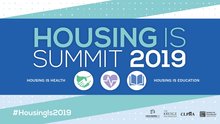
 Shared by Housing Is
on May 24, 2019
Shared by Housing Is
on May 24, 2019
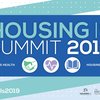

 Shared by Housing Is
on May 24, 2019
Shared by Housing Is
on May 24, 2019
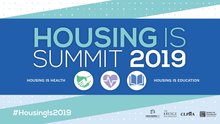
 Shared by Housing Is
on May 24, 2019
Shared by Housing Is
on May 24, 2019
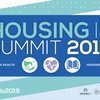
 Shared by Housing Is
on May 15, 2019
Shared by Housing Is
on May 15, 2019
 Shared by Housing Is
on May 9, 2019
Shared by Housing Is
on May 9, 2019
 Shared by Housing Is
on Apr 11, 2019
Shared by Housing Is
on Apr 11, 2019
 Shared by Housing Is
on Apr 11, 2019
Shared by Housing Is
on Apr 11, 2019
 Shared by Housing Is
on Apr 11, 2019
Shared by Housing Is
on Apr 11, 2019
 Shared by Housing Is
on Apr 8, 2019
Shared by Housing Is
on Apr 8, 2019